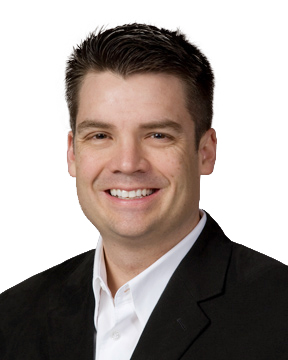Profile for James Longhurst

Contact me
James Longhurst
Pronouns: he/him/his
Professor
History
University of Wisconsin-La Crosse
James Longhurst Pronouns: he/him/his
Professor
History
Specialty area(s)
interim History Department Chair Spring 2025
Historian of urban and environmental policy, including transportation and bicycle history, and the social and cultural history of modern America
Brief biography
Before coming to La Crosse in 2008, I lived in New York, Ohio, Florida, Pennsylvania, Oregon and Idaho. I also work in active transportation advocacy on campus and in the community, with groups like Bicycle La Crosse,Active Wisconsinand Driftless Cycling; I'm a member of the Committee on Transit and Active Transportation of the La Crosse Area Planning Committee and on the board of the statewide organization 1000 Friends of Wisconsin. I enjoy biking and kayaking, and often spend summers near Lake Superior, or on a bike somewhere in Minnesota or Wisconsin.
Current courses at UWL
Spring 2025 - HIS 110, HIS 317 American Environmental History
Fall 2025-Spring 2026 on sabbatical
Education
Ph. D. History & Policy, Carnegie Mellon University, (Pittsburgh, PA) 2004
M.S. History & Policy, Carnegie Mellon University, (Pittsburgh, PA) 1998
B.A., U.S. History, Linfield College, (McMinnville, OR) 1994
Career
Teaching history
In addition to teaching first-year general education world history courses here at UW-L, I teach a variety of courses reflecting my interests in environmental history, the history of 20th century America, and public and policy history. My degree is in history and policy, a scholarly approach that is intended to produce historical research that can be useful in understanding public institutions and policy choices in the present. As such, I often discuss the links between past and present in my classroom, something that policy analysts call "path dependency" but that I like to call "history". This is particularly evident in my classes on environmental history and urban policy.
I have interests in public history and policy history. Public history can be quickly described as history with an audience outside the classroom, including museums, memorials, interpretive signage, and community outreach. Policy history is a subset of public history that works to offer historical research that can improve public policy decisionmaking in the present.. Public policy is the study of the strategies, actions, and problems faced by decision makers, ranging from taxation to infrastructure to social welfare, and I am interested in how those decisions about public policy are made, generally on the level of cities. I'm particularly interested in urban history, environmental politics, the form or design of cities, and the creation of institutions concerned with local, municipal, or state policy matters. I mostly address these topics in the United States, and in the 19th and 20th centuries.
In my general education world history courses, I've become committed to the Reacting to the Past approach, an active-learning pedagogy that invites students to roleplay historical figures from key moments in the past to better understand the primary sources from that era.
Professional history
"The history that lies inert in unread books does no work in the world." Carl Becker, "Everyman His Own Historian," The American Historical Review Vol. 37, No. 2 (Jan., 1932), pp. 221-236.
Research and publishing
I am the author of Bike Battles: A History of Sharing the American Road, published by the University of Washington Press in 2015, released in paper in 2017, and in translation by Katakrak Press as Las Batallas de la Bici in 2019. Widely reviewed and promoted, this book targets a popular audience with new scholarly history of the bicycle's policy and legal battles in American cities. There's more information available on the website. I've recently published a long-awaited chapter on turn-of-the-century sidepaths in Nature's Crossroads The Twin Cities and Greater Minnesota, from the University of Pittsburgh Press, 2023; and “'Such business will be impossible': Mitsubishi Trading Company and the roles of design and tariff policy in the American bicycle market (1933–1938)," in the Journal of Transport History, as well as "Reconsidering the Victory Bike in World War II: Federal Transportation Policy, History, and Bicycle Commuting in America" in the Transportation Research Record, and a Journal of Policy History article titled "The Sidepath Not Taken: Bicycles, Taxes, and the Rhetoric of the Public Good in the 1890s."
My previous research project focused on the rise of local environmental organizing in the United States and Pittsburgh in the late 1960s and early 1970s. I used one environmental organization, Pittsburgh's Group Against Smog and Pollution or GASP, as a case study of the impact of new federal legislation and judicial philosophy on local organizing, implementation and enforcement. This resulted in the 2010 publication of Citizen Environmentalists.
News
Kudos
presented
presented
presented
presented
presented





